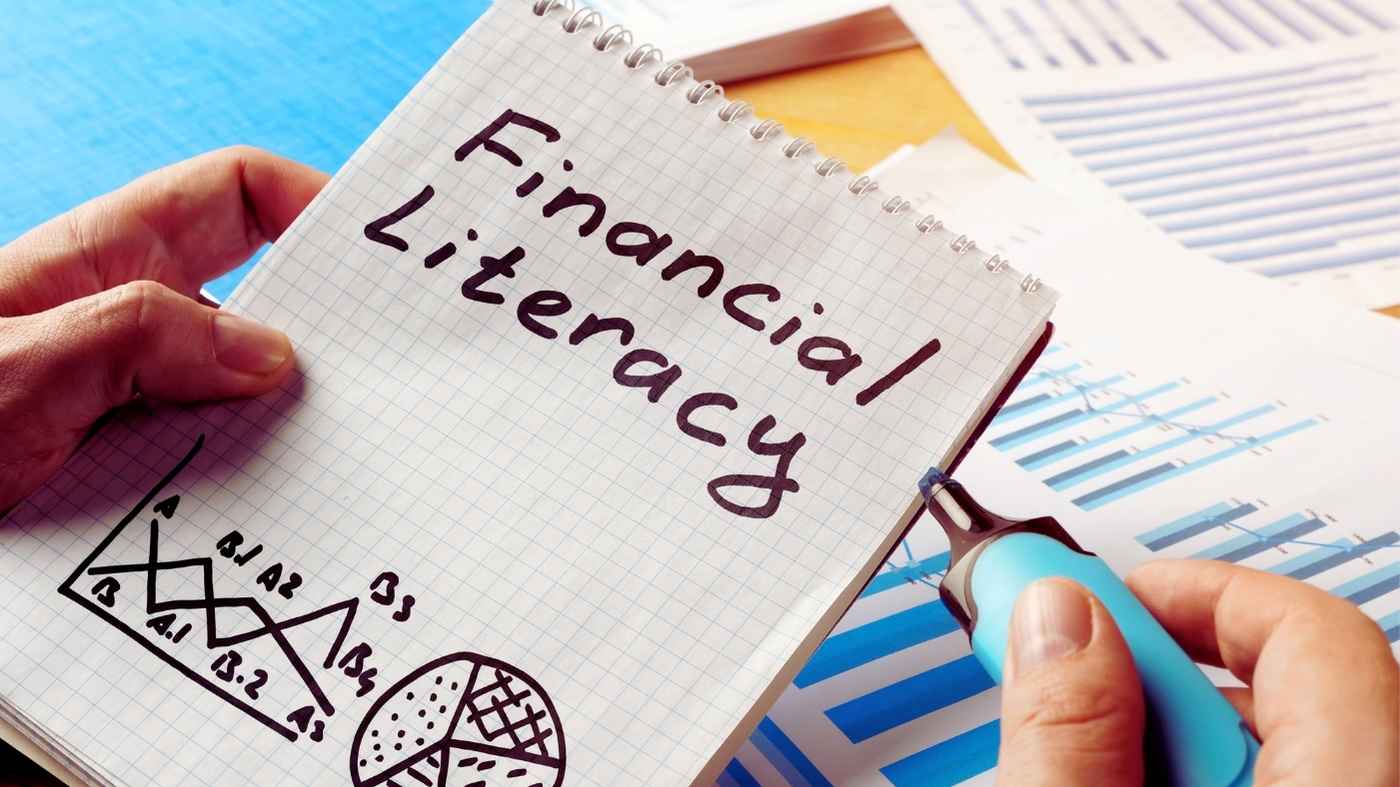Introduction: The Silent Revolution Begins with Rupees
Across India, women are making incredible strides in education, entrepreneurship, and leadership. But when it comes to financial decision-making, the story often takes a different turn.
Despite playing a significant role in household management, budgeting groceries, saving in gold, and educating children, many Indian women remain financially dependent on their spouses or families when it comes to significant financial matters, such as investments, insurance, retirement planning, or wealth transfers.
This gap isn’t a question of intelligence or ability. It’s a gap in access, confidence, and exposure. Financial literacy offers the power to change, to transform dependence into independence, hesitation into confidence, and silence into informed decision-making authority.
In this blog, we’ll explore why empowering women through financial education is a necessity in modern India.
What is Financial Literacy?
Financial literacy means understanding how money works. It’s the ability to make informed, effective decisions about earning, spending, saving, borrowing, and investing.
Core Elements Include:
- Creating and managing a budget
- Setting and achieving financial goals
- Making informed decisions about banking and credit
- Understanding and investing in financial instruments
- Knowing how to plan for retirement and emergencies
- Navigating insurance and tax planning
A financially literate woman is not just a saver; she’s a planner, an investor, and a protector of her and her family’s future.
Why Women Need Financial Literacy More Than Ever
1. Longer Life Expectancy
Women tend to live longer than men by 3–5 years, which means they will likely need to stretch their retirement savings further.
Implication: Women face more post-retirement years without income and must plan better for healthcare, inflation, and longevity risks.
For example, a woman retiring at 60 may live to be 85 or older. That’s 25+ years of post-retirement expenses.
2. Career Breaks and Gender Pay Gap
Women often take breaks from careers due to caregiving responsibilities (children, elderly parents). They also tend to earn less than men due to wage gaps.
Consequence: Fewer years of income + smaller earnings = lesser savings + lesser retirement corpus.
A woman earning ₹40,000 per month versus a man earning ₹60,000 per month for the same role accumulates far less over 25 years.
3. Risk of Dependency
Many women depend on their spouses for long-term financial planning. But what happens if the spouse passes away, or there’s a divorce or job loss?
Reality: Financial dependency can lead to stress, lack of control, and vulnerability in crisis.
True empowerment is knowing how to access, protect, and grow one’s wealth without external help.
The Indian Reality: Alarming Stats
Despite their significant economic and social contributions, Indian women continue to lag in achieving financial independence.
- Only 33% of Indian women take independent financial decisions (NSE-FinLit Survey)
- 70%+ working women prefer savings accounts or gold over productive investments
- Only 12% of women in urban areas invest in mutual funds or stocks.
- Less than 20% have any form of retirement planning in place.
This creates a massive gender gap in wealth accumulation, retirement security, and financial resilience.
Benefits of Financial Literacy for Women
✅ Confidence and Self-Reliance
When women understand financial products, they can make informed decisions about their money without relying on others. It boosts their self-esteem and decision-making power.
Example: Instead of waiting for the husband to handle investments, a financially literate woman confidently starts her SIPs.
✅ Better Family Security
A woman who knows how to manage her finances ensures her family’s well-being, encompassing education for children, health insurance, and emergency planning.
She becomes a pillar, not just a participant, in family protection.
✅ Smarter Investment Choices
Financially literate women explore diverse asset classes such as mutual funds, NPS, ELSS, fixed income, and PPF, and invest accordingly based on their goals.
This reduces reliance on low-yield savings or idle gold investments.
✅ Protection Against Financial Exploitation
Understanding money reduces the risk of being misled by relatives, agents, or online scams promising “double returns” or “quick wealth.”
✅ Intergenerational Impact
Financially empowered women teach their children good money habits early, including saving, investing, and goal planning. This creates a financially strong next generation.
Key Areas Women Should Master
- Budgeting & Expense Tracking: Know what you earn, spend, and save monthly.
- Bank Products & Credit Management: Understand savings accounts, credit cards, UPI frauds, and loans.
- Insurance: Life and Health policies are essential. Know the types and how to choose them.
- Investments: Learn about SIPs, mutual funds, equity, FD, and gold ETFs.
- Emergency Fund: Set aside 6–12 months of expenses.
- Tax Saving: Use deductions (80C, 80D, 24b) to plan tax efficiently.
- Retirement Planning: Build EPF, NPS, annuity income.
- Estate Planning: Will, nominations, PoA, joint ownership.
Challenges Women Face in Becoming Financially Literate
🧠 Cultural Conditioning
From a young age, women are told that men manage money. This mindset discourages curiosity and confidence.
🕰️ Time Constraints
Balancing work and household chores leaves little time for financial education or market tracking.
🤝 Lack of Trustworthy Guidance
Many women hesitate to approach advisors, fearing judgment or complexity.
😨 Fear of Making Mistakes
The financial world can seem overwhelming; stocks, returns, interest rates, taxation, and a fear of losing money often lead to avoidance.
Solution: Start small, learn gradually. Ask questions without hesitation.
How to Bridge the Gap
👩🏫 Workshops and Sessions
Encourage corporates, colleges, and RWAs to host financial literacy sessions specifically for women.
💬 Open Conversations at Home
Families should involve women in all financial discussions, from buying property to reviewing their portfolio.
🪙 Start Small, But Start
Even a ₹500 SIP builds confidence. Experience leads to empowerment.
💼 Women-Centric Advisory
Women feel more open with female financial planners or trusted advisors who don’t judge or oversell.
Real-Life Example: Radhika’s Journey
Radhika, a 38-year-old schoolteacher from Surat, always left financial decisions to her husband. After his sudden passing, she found herself overwhelmed with investments, insurance, and bank paperwork.
Her son helped her understand SIPs, term insurance, and estate planning. She now:
- Manages her mutual fund portfolio
- Pays bills online
- Has created a will
- Runs a WhatsApp group educating her fellow teachers on money matters
Today, Radhika is no longer afraid of money; she’s in charge of it.
Empowering Women Empowers the Nation
Research indicates that women tend to be better savers and more risk-aware investors. When women manage money:
- Household stability increases
- Children learn smarter habits.
- Communities thrive
Empowering one woman financially has a ripple effect, uplifting generations to come.
“Teach a man and you teach an individual. Teach a woman and you teach a generation.”
Final Words: Money Is Power. Let Women Own It.
Financial literacy is not optional for women. It’s essential.
- It protects against uncertainty.
- It builds confidence.
- It ensures dignity in later life.
Let’s normalise questions like:
- “Do you invest for your future?”
- “Are your nominations up to date?”
- “Can you handle finances on your own?”
Let’s stop assuming and start educating, empowering, and encouraging every woman to take charge of her financial journey.
💡 When a woman understands money, she doesn’t just save, she transforms her world.
Want to host a women-centric financial session in your society or workplace?
Contact VSJ FinMart for customised workshops.
📘 Further Reading on Women & Financial Literacy
🔹 1. UN Women – Why women’s economic empowerment matters
A global perspective on how empowering women economically fosters more equal and resilient societies.
🔹 2. SEBI – Investor Awareness for Women
SEBI’s investor education portal features women-focused resources, FAQs, and tools to build investment awareness.
🔹 3. Women’s World Banking – Financial Inclusion for Women
An international nonprofit dedicated to giving low-income women access to financial tools and resources.
🔹 4. The Economic Times – Financial Planning Tips for Young Indian Women
Encourages women to take early charge of earnings, savings, and SIPs, and negotiate financial independence from the first paycheck.
🔹 5. Moneycontrol – Why a Customised Financial Plan Is Key to Financial Freedom
Highlights the need for personalised planning, especially for women facing career breaks or gaps in savings.
Disclaimer: The information provided in this blog is for educational and informational purposes only and should not be considered as financial, investment, or tax advice. While every effort has been made to ensure accuracy, readers must consult a qualified financial advisor before making investment decisions. VSJ FinMart is an AMFI-registered mutual fund distributor (MFD) that does not provide investment advisory services. Mutual fund investments are subject to market risks; please read all scheme-related documents carefully before investing.

